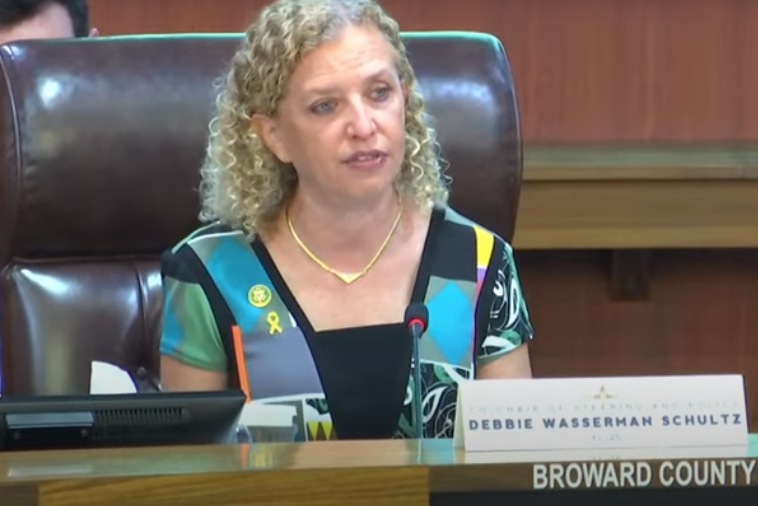Democratic U.S. Rep. Debbie Wasserman Schultz and other top House Democrats held a congressional field hearing on Tuesday in Broward County to talk about “the escalating threat to reproductive freedom.”
The hearing comes a day after Florida’s Supreme Court cleared the way for the state to ban abortions after six weeks of pregnancy and gave the green light to a allow Florida voters decide whether to protect abortion rights.
The Democrats are being led by Wasserman Schultz, D-Fla., and House Democratic Leader Hakeem Jeffries, D-N.Y. as part of the House Democratic Steering and Policy Committee.
VIEW: U.S. House Field Hearing on Reproductive Freedom
“This hearing is an essential step in our ongoing commitment to safeguarding reproductive freedom,” said Wasserman Schultz in a statement. “We cannot ignore the relentless assault on women’s healthcare rights. It’s imperative that we come together to confront these challenges head-on.”
The hearing was held at the Broward County Government Center with doctors, “stakeholders” and women testifying.
U.S. Health and Human Services Secretary Xavier Becerra also spoke. “Right now 23 million women of child-bearing age live in states with abortion bans — including 4 million Floridians,” he said. “Women and doctors are facing threats to their lives and well-being.”
Deborah Dorbert testified that she was forced to carry a troubled pregnancy to term because of Florida law.
“So Florida law forced you to carry the baby until 37 weeks with no amniotic fluid and a certainty that he would not survive?” Wasserman Schultz asked.
“Yes,” replied Dorbert.
The Florida Supreme Court Monday issued two key rulings on the abortion, which ensures that the contentious topic will almost certainly dominate debate leading up to the November presidential, congressional and state legislation election.
In one decision, the judges ruled 6-1 to uphold the state’s ban on most abortions after 15 weeks of pregnancy, meaning a ban on six weeks could soon take effect. But under a separate 4-3 ruling, the court allowed a ballot measure to go to voters that would enshrine abortion rights in Florida’s constitution.
The 15-week ban, signed by Gov. Ron DeSantis in 2022, has been enforced while it was challenged in court. The six-week ban, passed by the Legislature last year, was written so that it would not take effect until a month after the 2022 law was upheld.
Planned Parenthood, the American Civil Liberties Union and others challenged the law in court. They argued the Florida Constitution’s unique privacy clause for more than 40 years has explicitly protected a right to abortion in the state and should remain in force.
Lawyers for the state, however, said when the privacy clause was adopted by voter referendum in 1980, few people understood it would cover abortion. They told the justices the clause was mainly meant to cover “informational privacy” such as personal records and not abortion.
The Florida justices agreed, saying that when voters approved the privacy clause, they didn’t know it would affect abortion laws.
The proposed constitutional amendment that will be on the November ballot says “no law shall prohibit, penalize, delay, or restrict abortion before viability or when necessary to protect the patient’s health, as determined by the patient’s healthcare provider.” It provides for one exception that is already in the state constitution: Parents must be notified before their minor children can get an abortion.
Since the U.S. Supreme Court overturned Roe v. Wade in June 2022, most Republican-controlled states have adopted bans or restrictions on abortions. Every ban has faced a court challenge.
A survey of abortion providers conducted for the Society of Family Planning, which advocates for abortion access, found that Florida had the second-largest increase in the total number of abortions provided since Roe v. Wade was overturned. The state’s data shows that more than 7,700 women from other states received abortions in Florida in 2023.
Dorbert was asked what was the impact on her family.
“My four-year-old son had to see a therapist to understand why his brother died. So we all really struggled with our mental health,” Dorbert said.
The Associated Press and the Indpendent’s John Pacenti contributed to this article.

Sergio R. Bustos
Sergio Bustos is WLRN's Vice President for News. His work appears under a partnership between WLRN and the Key Biscayne Independent.


